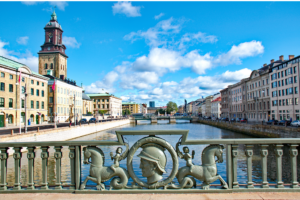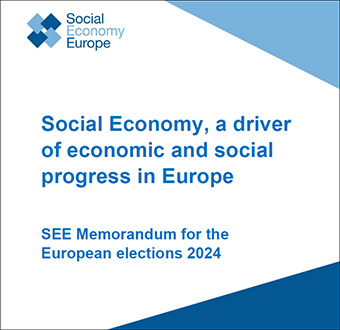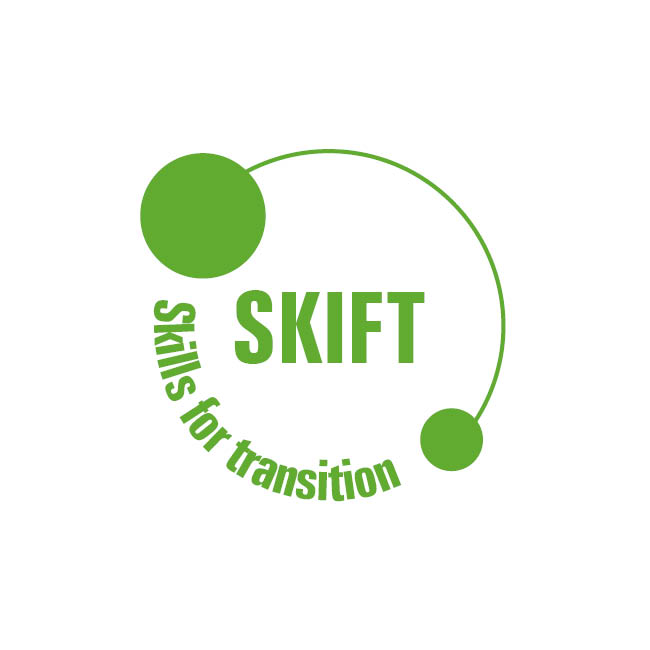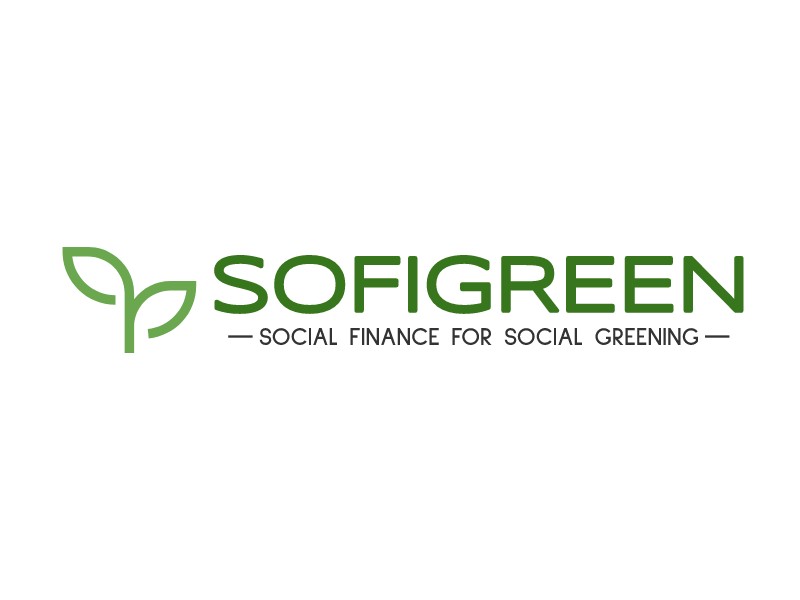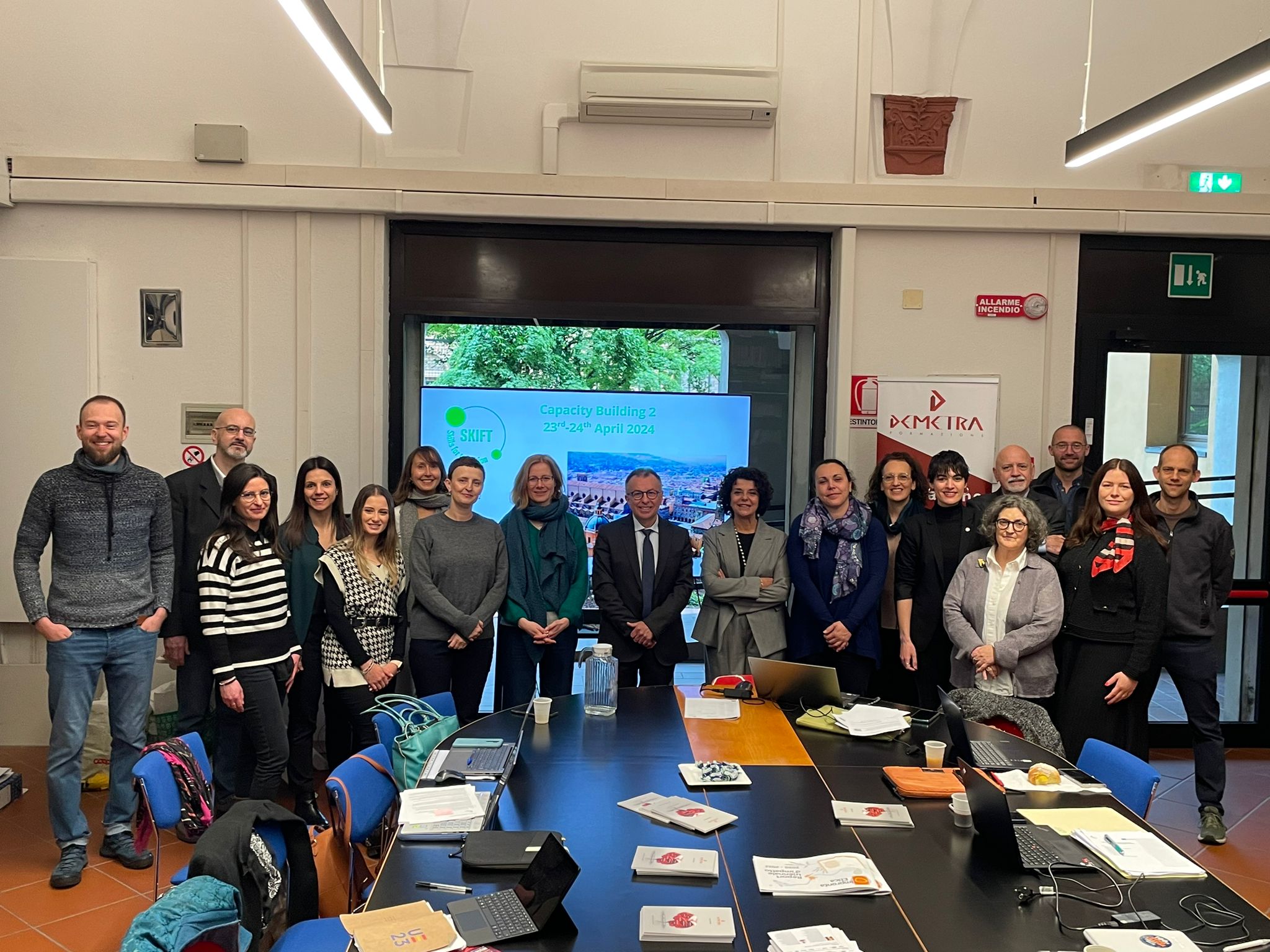Join us for the RESPONDET European Policy Lab in Gothenburg!
The RESPONDET consortium is glad to have the occasion to organize its European Policy Lab in the framework of the European conference «Social Economy building a stronger resilient Europe” which will be organized on 8 and 9 June 2023 in Gothenburg (Sweden). The Policy Lab will be split in two parts: Part I, held in the afternoon of 8 June 2023, will focus on circular economy. Part II – scheduled for the morning of 9 June 2023 will take a closer look at community energy initiatives.
More concretely, in the framework of this Policy Lab, RESPONDET partner cities and regions and their social economy partners would like to:
- share experiences they made whilst drafting – in a participatory way – local action plans promoting the role of the social economy in green transition (with a specific focus on circular economy and community energy initiatives) and
- discuss possible solutions to challenges they have come across in this process or that they perceive for the implantation of planned actions.
They will be joined by other European cities and regions, representatives of the Committee of the Regions and the European Commission, social economy organisations, European networks such as the European Enterprise Network and others.
The Policy Lab addresses local, regional, but also European policy-makers, civil servants, social economy, academics and civil society organisations.
Registration is possible under the following link: https://socialeconomy2023.com/
Fourth mission Torino: New governance models and new forms of partnership in green transition processes

Image: Torino Social Impact
The fourth RESPONDET mission workshop, held in the city of Turin on 24 and 25 January 2023, brought together 31 participants representing policy-makers, local administration, social economy actors and civil society from the regions of Wallonia, Małopolska, Calonia and the city of Turin around new governance models and new forms of partnership in green transition processes.
An introductory session in the morning of the first workshop day made participants more familiar with policies of green transition and social innovation in Torino, including Torino Social Impact – a multi-stakeholder partnership and ecosystem promoting social (economy) entrepreneurship in a variety of areas. This was followed by exchanges with Confcooperative Piedmonte, Mercato Circolare and other organisations around topics such regional protocoles for the development of citizen energy initiatives, circular economy or the role also of the Turin neighbourhood houses (Case del Quartiere) in mobilizing citizens and promoting green transition. During lunch, the guests from other European regions had the possibility to discover, through a game, other local initiatives. In the afternoon, study visits brought participants to social economy-based community hubs such as Fonderie Ozanam with – amongst others, its urban gardening initiatives, Via Baltea or to Open Incet, the centre for open innovation of the city of Torino which has also become active with regard to community energy projects.
The second workshop day was devoted to interactive world café discussions between project partners. These discussions built on previous discussions and the exchange of information between project partners in preparation of the workshop. They focused on topics such as the role of local authorities in community-driven green transition processes, possibilities for a better mobilization of citizens or opportunities and obstacles for experimentation. The objective was also to formulate ideas and recommendations that could then feed the preparation of local/regional action plans for green transition.
The event was co-organised by the city of Torino and the Turin Chamber of Commerce in cooperation with other members of the Torino Social Impact Alliance, Mercato Circolare and the Case del Quartiere Network.
RESPONDET goes to theatre for Biennale Democrazia in Turin

Image: Torino Social Impact
On 24 March 2023 RESPONDET project was presented in Biennale Democrazia, a cultural event promoted by the City of Turin. The aim of the initiative is to spread a culture of democracy that can translate into concrete democratic practices in different spheres, including the economy.
The “theatrical journey” (reading, interviews and visual design), with the title “Communities free to respond to the future”, was performed by Nadia Lambiase of Mercato Circolare, with the participation of Simona De Giorgio (Turin Chamber of Commerce) and Valeria Vacchiano (City of Turin), in collaboration with Torino Creative City UNESCO for Design.
The story of the Little Prince opened the way for a dialogue about freedom and the corresponding responsibility, the social economy and the role of the public administration. Talks about Circular Economy as a way of balancing ecological transition, social impact and freedom were held during the event. The aim was also to present the Italian and European experiences about SE in the context of the Respondet project, its teachings and future steps.
You can find here a videorecording of the event:
https://www.youtube.com/watch?v=FuM_yFDTJ7M
The added value of a local action plan for co-creation processes in the field of (green) transition and the role of public administration
Three questions to the Municipality of Torino and Torino Social Impact
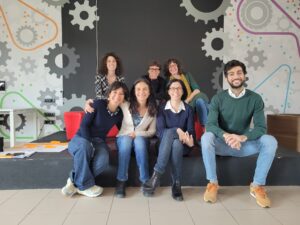
Image: City of Torino/Turin Chamber of Commerce
A number of interesting initiatives linked to Green Transition are currently being realized in the city of Torino. Which added value might an action plan bring to these existing projects and stakeholders and which are new topics you plan to put on the agenda through the plan?
The added value we are already experiencing is the opportunity to frame each single initiative into a bigger strategy where you can gather the different projects that are affecting the territory. This also is giving us the chance to create a common vision shared between each local actor in a process of co-creation, where they can share their own perspective on the same topic but from a different point of view.
We confirm this action plan is already helping all the different players in exchanging knowledge and information and it will help to reinforce the relationships and the cooperation between all the local stakeholders and with the municipality, also building trust.
The new topics are related to the role of the administration in facilitating the generative capacity of the local actors and citizens. They will result from the needs and solutions that will emerge from the workshops with the stakeholders.
In the drafting phase, but then probably also in the implementation of the action plan the city of Torino can count on the cooperation of a large number of local/regional actors – not at least due to the close partnership with Torino Social Impact. How did you/will you mobilise the different players and which role do or will they play?
Turin is the ideal ecosystem to undertake the paradigm shift toward a social impact economy and make it a determining factor for local development policies. In this context, Torino Social Impact has mobilized different social economy players, such as companies, institutions, foundations and third sector enterprises, in order to draft the Local Action Plan.
A call to action was launched to TSI’s partners interested in the green transition process (specifically in circular economy and community energy initiatives), and these local actors were involved in a process of creation of new policies promoting the role of the social economy.
Experts, institutions, bank foundations and policy makers were involved in two focus groups in order to create knowledge and exchange good practices. Local organizations will be also engaged in some workshops to define needs and demands of the territory, that will be taken into the action plan.
Which are inspirations you took from conversations with RESPONDET partner regions and social economy partner organisations from other countries?
We had so much inspiration from our European partners that it is really hard to answer in a few lines. The highlights from this enriching exchange with them can be underlined by the Wallonie Region’s Circular Economy Plan, a true source of inspiration for every local authority, by the cohesive and close relation between Cooperatives and the Generalitat de Catalunya, one of the best examples in Europe, and by the inspiring local initiatives and their involvement with the citizenship that we found in the Malopolska Region.
Answers to our questions were “co-constructed” by: Valeria Vacchiano, European project manager, City of Torino/
Francesco Tortorella, Social Innovation Office, Municipality of Torino/
Antonella Santarsiero, Social Innovation Office, Municipality of Torino/
Raffaella Scalisi, Strategic advisor of Torino Social Impact/
Simona De Giorgio, coordinator of the Social Entrepreneurship Committee of the Torino Chamber of Commerce and Torino Social Impact/
Irene Maddio-Rocco, project manager/Torino Social Impact.
___________________________________________________________________________________________________________________
New forms of governance and partnership around green transition – Practice examples from RESPONDET partner regions
Piedmont Region (IT): Protocole for the development of citizen energy initiatives

Image: INTERREG Europe
Third sector organisations, public authorities, universities and players active in the development of citizen energy initiatives in the Piedmont region are currently working on the establishment of an alliance and protocol around citizen energy initiatives. The objective is to ensure a common vision – linked to the development of the region as a whole and to the pursuit of community interest and related principles – as well as to develop services and communities able to accompany the creation of new citizen energy initiatives. Also, service providers that will engage with citizen energy initiatives in Piedmont will have to adhere to the protocol and therewith confirm also their respect of the ethical principles it stipulates.
Region of Catalonia: Network of Ateneus Cooperatius and Network of Urban Communities
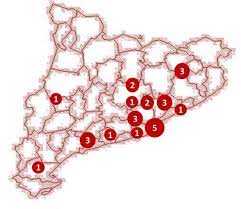
Image: BCN Magazine
ImageThe Generalitat de Catalunya, in its latest budget lines promoting cooperatives and the social and solidarity economy, has launched the Network of Cooperative Ateneus and the Network of Urban Communities which, apart from supporting projects and initiatives of their territory, participate with their proposals in the improvement of public policies to stimulate the development of cooperatives and the social and solidarity economy in general.
This co -creation process of public policy – in which the sector and territories participate to define the strategic lines to be developed with the aforementioned promotional policies – has resulted in a multiplying effect of the results, a faster detection of the needs of the territory and a better adaptation of public policy responses to these needs.
Belgium/France/Spain/Italy: TESS European Economic Interest Grouping

Since 2016, TESS-European Economic Interest Grouping (EEIG) has brought together European Social Economy actors from different EU Member States (Belgium, Spain, France and Italy) and has the following missions: 1) to address the challenges of the textile industry related to the circularity of resources; 2) to guarantee the ethics and transparency of the textile, household linen, footwear and leather goods recovery chain. The objective of TESS is to reach a sufficiently large critical size (annual objective: 100,000 tons of collected and reused clothing) to compete with the large brands or private chains that engage in the reuse of textiles without respecting the values of the social economy (for example, H&M, which organizes clothing collections in its Belgian stores but exports the collected goods to be processed in Berlin). TESS is notably working with a law firm to examine what room for manoeuvre and directions to take at the European level. More information: https://tess-geie.eu/fr
Małopolska Region (PL): Cracow Social Energy Community
The Cracow Social Energy Community is a local cooperative that enables everyone interested to engage in a green transition process. Its objective is to use the potential of the roofs of different buildings to cater the energy demand of the city with local energy sources. The offer is addressed to companies, institutions, communities and cooperatives of inhabitants who put at the disposal of the cooperative the roof of their buildings on which a photovoltaic micro-installation can then be placed. It is worth mentioning that this cooperative is not an energy community as the Act on Renewable Energy Sources says. It is an investment community, which means that the members do not use the energy produced. The cooperative takes profit from selling energy to other consumers. The community can use the energy produced, however, to supply its own building.
City of Turin: Torino Social Impact
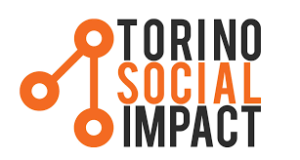
The Turin Chamber of Commerce (a public body!), through the Social Entrepreneurship Committee, has been supporting the Torino Social Impact Platform, an alliance among public and private actors that in the framework of their activities carry out projects with a meaningful social impact. It is a cluster rich in skills, initiatives, opportunities and services, including also the area of green transition.
Torino Social Impact has over 240 partners including social enterprises, accelerators and incubators, public bodies, foundations and financial institutions, start-ups, universities, spaces and networks of expertise, associations and companies that make up an attractive and innovative ecosystem in the field of social innovation and impact economy. The different partners also collaborate in a horizontal strategic planning aimed at building common infrastructures and pilot projects to strengthen the ecosystem as well as creating a collective brand to promote the ecosystem and position it on the global map of social impact investments.
For more information:
https://www.torinosocialimpact.it/
Other news
Brussels-Capital Region (BE) : Declaration for the Support of Slow Fashion – Call for signature
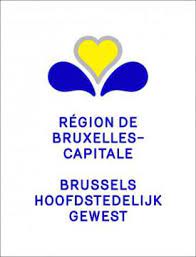
Barbara Trachte, Secretary of State for Economic Transition of the Brussels-Capital Region (BE), is proposing a declaration calling on the Member States of the European Union, the OECD, the G7/G20 and the United Nations to create a fair level playing field for sustainable slow fashion.
The declaration points to the significant negative impact the mainstream fashion industry has on the environment, but also the barriers it represents for social progress. At the same time it highlights the emergence, in many cities and regions, of more sustainable models of enterprise in the fashion area and their potential, but also to the difficulties these enterprises and projects – linked amongst others to the social economy – have face to the (unfair) competition by multinationals and other big players.
The declaration lists a number of proposals for action that should be taken at regional, national, European and international level – among them a ban of unfair trading practices, prohibition of incentives to consume (e.g. through fast fashion advertising), the adoption and implementation of an ambitious Carbon Border Adjustment Mechanism (CBAM) and the extension of its scope to the textile industry, the adoption of a European Slow Fashion Label, favourable taxation for slow fashion initiatives, the appropriate use of public procurement or the reorientation of financial tools.
It is open to signature by cities and regions. You can find the document here. Should your city/region wish to sign the declaration, please contact slepczynski@gov.brussels.
Citizen energy communities/renewable energy communities: European Commission support service for citizens led renovation projects
The support service for citizens led renovation projects is an initiative by the European Commission, that provides support to selected citizen energy communities (CEC) or renewable energy communities (REC) directly, or through initiative supporting the CEC and REC, in developing services on renovation for their members. Up to 3 applicants will be selected for a tailored support of nearly 18 months, to help reaching over 500 000 euro of investments in energy renovation, and 500 000 euro investments in renewable energy. The pilot initiative aims to gain an understanding of the role and potential of energy communities to contribute to an increasing share of residential renovations, and cooperate or work in parallel with existing and emerging one-stop shops. The support service will guide and co-create the procedures, services, identification of renovation projects, and support service management structures to ensure that renovation support becomes a long term service of the energy community towards its members.
The application form is accessible HERE.
The role of local and regional authorities in defining and implementing National Energy and Climate Plans
Online Survey
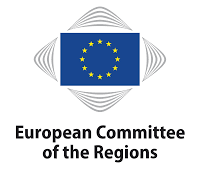
The European Committee of the Regions and the Council of European Municipalities and Regions (CEMR) are launching a survey on the role of local and regional authorities in the design and implementation of the National Energy and Climate Plans (NECPs).
In the context of the European Green Deal and its Clean Energy Package, Member States are required are required to establish and periodically revise a National Energy and Climate Plan (NECP), or any equivalent documents depending on the national context. Under Article 11 of the Governance of the Energy Union and Climate Action Regulation, they are also required to establish Multilevel Climate and Energy Dialogues (MCEDs).
With the June 2023 deadline approaching for Member States to submit their updated NECPs to the European Commission, the outcomes of the survey will help clarify the role of local and regional authorities (LRAs) in the energy governance of the EU and the state of implementation of MCEDs in the different Member States.
The survey will take approximately 20 minutes to complete, it will be soon available in all EU languages. The outcomes will feed into two coordinated studies carried out by the CoR and the CEMR and will shape their respective political positions on the revision of the Governance regulation.
The CoR will also make use of the information that was gathered for the Opinion “A multilevel governance for the Green Deal. Towards the revision of the Governance regulation” by rapporteur Joško KLISOVIĆ (HR/PES) and will report on the main findings on the State of Regions and Cities 2023 report.
You are kindly invited to reply to the online questionnaire by 2 June 2023: the survey is available HERE.
Should you have any questions regarding the survey, please contact: http://enve@cor.europa.eu.
Follow us here: https://www.revesnetwork.eu/project/respondet/
Twitter: #RESPONDET
![]()
Views and opinions expressed in this newsletter are those of the author(s) only and do not necessarily reflect those of the European Union or EISMEA. Neither the European Union nor EISMEA can be held responsible for them.
Read More
European Elections: Help us mobilising (future) MEPs to keep social economy on the EU policy agenda
The European elections are approaching. Their outcome will decide on the direction the EU will…
REVES Annual Meeting 2024: Focus on inter-cooperation between different (social economy) actors and municipalities
REVES Annual Meeting 2024: Focus on inter-cooperation between different (social economy) actors and municipalities REVES…
OPEN CALL: POSSIBILITY FOR MICRO&SMALL SE ENTERPRISES TO RECEIVE FREE ADVISE AND COACHING ON GREEN TRANSITION-RELATED TOPICS
The SKI.F.T call for proposals is now open! Micro and small social economy enterprises…
GREENING OPPORTUNITY FOR SEEs
the SOFIGREEN call for proposal for SEEs operating in France, Italy and Spain is now…
 Docs
Docs  Support
Support 

